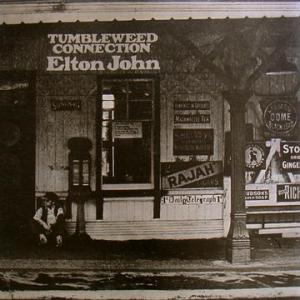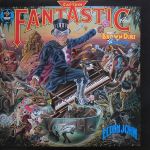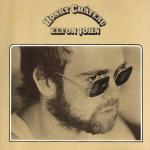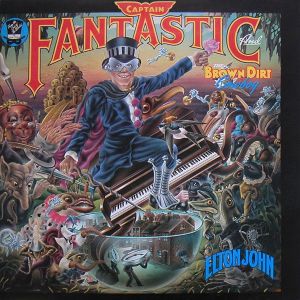More Elton John
Reviews and Commentaries for Honky Chateau
- This vintage UK import pressing boasts superb Tubey Magical British Rock sound, with excellent Double Plus (A++) grades on both sides
- A monster Demo Disc – the bottom end is huge, the top is open and extended, and the overall tonality rich and balanced
- An amazing recording and a founding member of our Top 100 – it’s a shame we rarely find them with sound this good and audiophile quality surfaces (DJM see-through vinyl being what it is)
- 5 stars: “The most focused and accomplished set of songs Elton John and Bernie Taupin ever wrote.”
- This is a Must Own album from 1972, one that deserves a place in any audiophile’s collection
- Honky Chateau is also one of those albums with one set of very special stampers that consistently win shootouts.
If you doubt that Elton John was an unusually gifted Pop Music Genius for much of the ’70s, just play this record. These eleven tracks should serve as all the proof you could possibly need. There’s not a dog in the bunch, and most of these songs are positively brilliant. Drop the needle on any track, you simply can’t go wrong.
Honky Chateau has to be one of the best sounding rock records of all time — certainly worthy of a prized spot on our Rock and Pop Top 100 List. It’s a shining example of just how good High-Production-Value rock music of the ’70s can be.
The amount of effort that went into the recording of Honky Chateau is comparable to that expended by the engineers and producers of bands like Supertramp, The Who, Jethro Tull, Ambrosia, Pink Floyd and far too many others to list. It seems that no effort or cost was spared in making the home listening experience as compelling as the recording technology of the day permitted.
The sides that had sound that jumped out of the speakers, with driving rhythmic energy, worked the best for us. They really brought this music to life and allowed us to make sense of it. This is yet another definition of a Hot Stamper — it’s the copy that lets the music work as music.
Big Production Tubey Magical British Rock just does not get much better than Honky Chateau. (more…)


 More of the Music of Elton John
More of the Music of Elton John When the strings give in to a lovely Spanish guitar in the left channel (which sounds like a harp!) just before Elton starts singing, the effect is positively glorious. It’s the nexus where amazing Tubey Magical sound meets the best in popular music suffused with brilliant orchestral instrumentation. Who did it better than The Beatles and Elton John? They stand alone.
When the strings give in to a lovely Spanish guitar in the left channel (which sounds like a harp!) just before Elton starts singing, the effect is positively glorious. It’s the nexus where amazing Tubey Magical sound meets the best in popular music suffused with brilliant orchestral instrumentation. Who did it better than The Beatles and Elton John? They stand alone.






